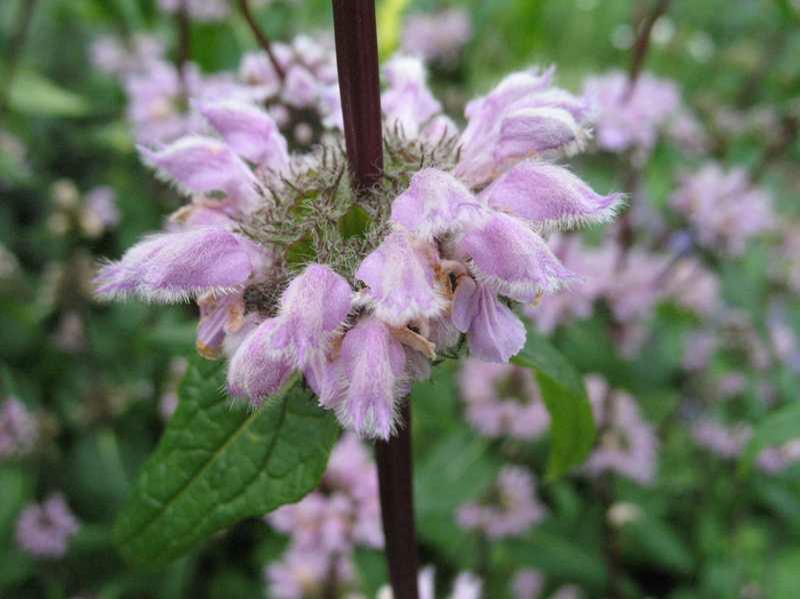Phlomis (Phlomis tuberosa ‘Amazone’)
Phlomis
Phlomis tuberosa is a tuberous-rooted perennial of the mint family. It is native to southern Europe and Asia. Tiny, tubular, lavender-pink flowers in dense whorled clusters (verticillasters) bloom at intervals up long, columnar, 4-angled, dark red flowering stems (to 8 clusters per stem) in late spring to early summer (May – July). Flower clusters give way in summer to ornamental seed heads which remain attractive throughout fall into winter. Wrinkled, toothed, arrowhead-shaped, rough-textured, green basal leaves (to 8″ long) form a mound of foliage to 15″ tall, but the upright flower stems rise well above that foliage to 3-4′ tall.
Genus name comes from the Greek name phlomis for some plant possibly not of this genus.
Specific epithet refers to the plant’s tuberous roots.
‘Amazone’ is primarily distinguished from the species by being taller and by having a more vigorous growth habit.

Best grown in organically rich, fertile, medium moisture, well-drained soils in full sun. Tolerates light shade. Performs well in sandy loams. Plants tolerate some dry soil conditions. Avoid wet soils.
| Hardiness zone | 6 - 9 |
| Sun light | Full sun |
| Water | Medium |
| Maintenance | Medium |
No serious insect or disease problems.
Excellent vertical flowering plant for dry sunny areas. Borders. Meadows.
| Common name | Phlomis |
| Botanical name | Phlomis tuberosa 'Amazone' |
| Plant type | Herbaceous perennial |
| Family | Lamiaceae |
| Hardiness zone | 6 - 9 |
| Water | Medium |
| Maintenance | Medium |
| Flower color | Lavender-pink |
| Flowering period | May - July |
| Height | 3 - 5 ft. |
| Width | 2 - 3 ft. |